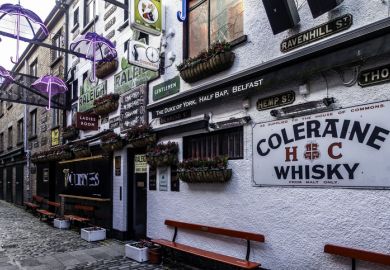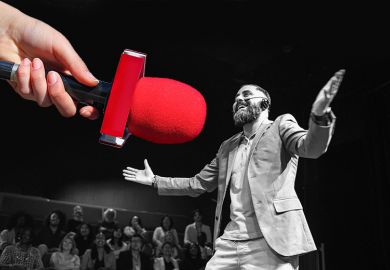Effective outreach initiatives, argues Zahir Irani, dean of the College of Business, Arts and Social Sciences at Brunel University London, are a way of “opening the gates to the local community” and “extending the notion of student volunteering”.
They can help to ensure that “the purpose of the university is more than just churning out graduates” and “redefine what it can do” for its area beyond simply providing jobs. They can also enhance ratings for both “impact” and “employability”.
To develop its work in this area, Brunel is appointing a new community engagement director tasked with creating programmes designed to “enable all students to reflect and develop personally and professionally throughout their time at Brunel, particularly through the ability to see themselves as part of not just the university but also a vibrant local community where their actions can help enhance the quality of life and accelerate the economic development of local societies”.
This will involve beefing up links with the borough council, local residents’ association, companies and charities as well as with internal groups such as alumni, heads of department, the student Advice and Representation Centre, and the Placement and Careers Centre. Equally crucial is ensuring that such partners help get the message out about what the university can now offer the public.
All this is enabling Brunel to develop a range of pro bono projects that should provide their students with some very useful experience. So what are some of the plans that they are pioneering and that other institutions might also want to consider?
From the start of this term, and before expanding to other schools, Professor Irani wants to “bring the local community into the university” through the law school.
Anyone who needs guidance and wants to tap into the expertise available within the school will be able to come in for regular free “surgeries” with academics (many of them also practising lawyers) willing to give their time.
Students can also take part in these, learning about the legal problems of “ordinary people” and the best ways of helping them sort out their problems. Although this should certainly enhance their empathetic and communication skills (and look good on the CV), in the first instance student involvement in such “clinics” will be voluntary and not credit-bearing. “The engagement of students will depend on the subject,” says Professor Irani.
It would obviously not be appropriate for students to start giving legal advice, but in many other areas students (overseen by academics) can often provide guidance for companies or individuals seeking help.
Those studying theatre, for example, might well be able to help local groups in putting on plays. Others may have bright ideas about branding and marketing that they are willing to share with local businesses, which can also come and ask academics for suggestions about entrepreneurship or intellectual property rights.
Such free informal help obviously has to be kept distinct from (although it may lead to) formal consultancy assignments with deliverables or commissioned research when companies enter into commercial relations with the Brunel Business School.
More generally, Professor Irani sees a role for the university in “helping the community explore itself”, perhaps through tutorial services, “arts in the community” programmes or the department of English and creative writing reaching out to locals who think that they’ve got a novel or a play in them.
“When we hold community activities,” he goes on, “they tend to be well received” (although this may be made easier by the fact that Brunel has an easy-to-find campus with good parking facilities and only a single way in and out).
Pressures on services such as libraries and Citizens Advice Bureaux in an age of austerity give universities a chance to step in and take up some of the slack – to the benefit of students, institutions and the communities that they are based in. It is all about “creating less distance between the research we do and the taxpayer”, concludes Professor Irani.
POSTSCRIPT:
Print headline: Brunel engineers closer ties between town and gown
Register to continue
Why register?
- Registration is free and only takes a moment
- Once registered, you can read 3 articles a month
- Sign up for our newsletter
Subscribe
Or subscribe for unlimited access to:
- Unlimited access to news, views, insights & reviews
- Digital editions
- Digital access to THE’s university and college rankings analysis
Already registered or a current subscriber?






